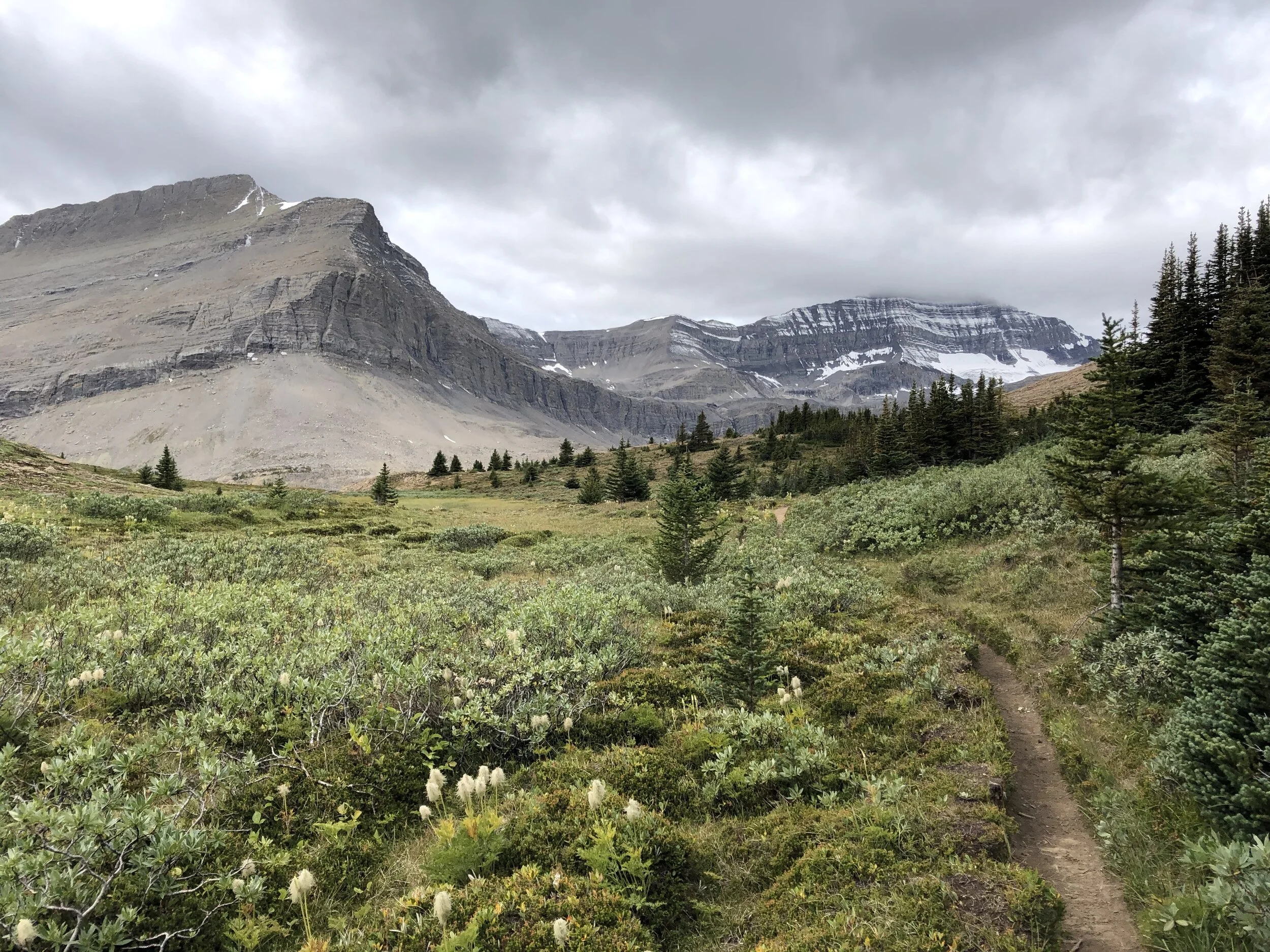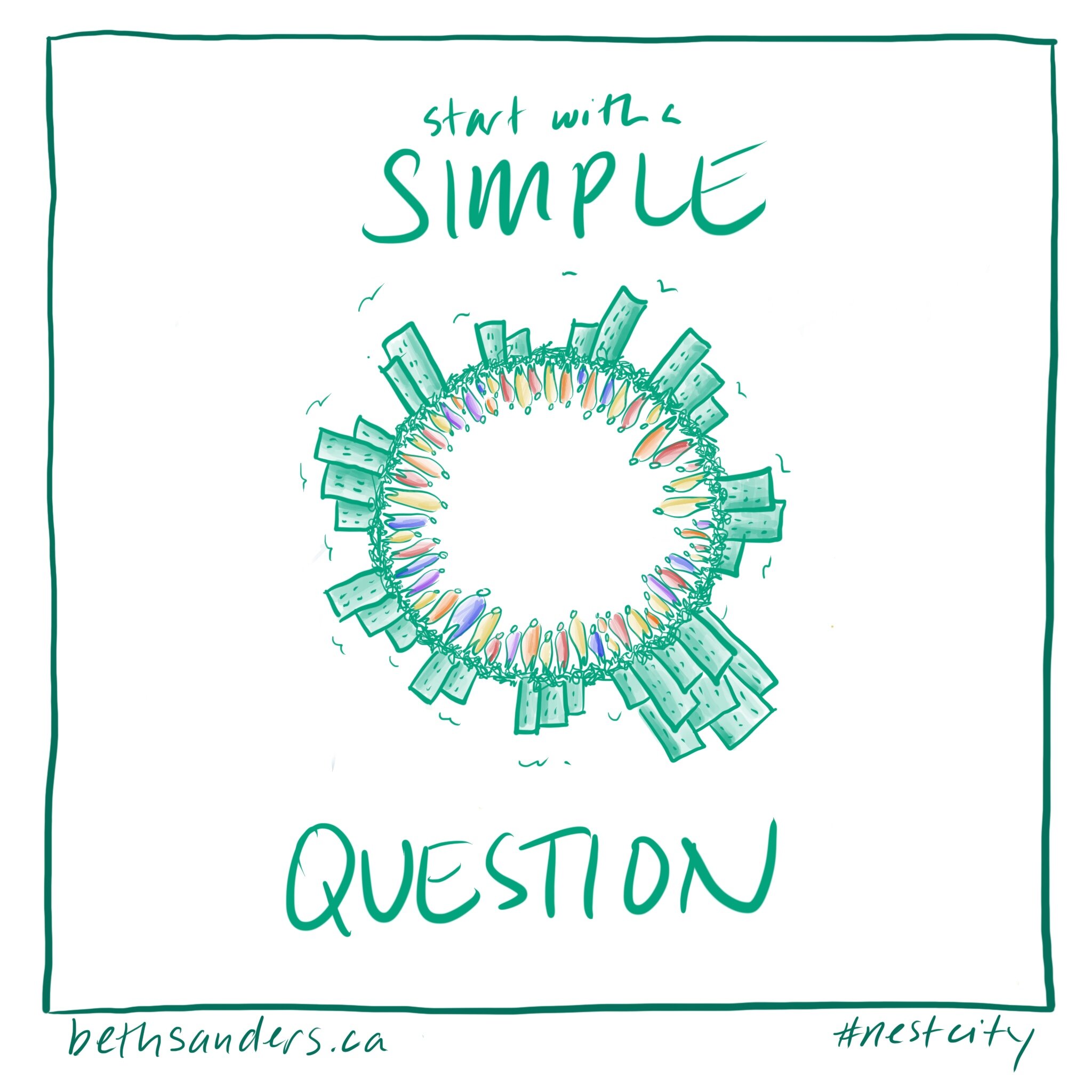I bet this is a familiar experience: someone says they want to hear what you think and they do most of the talking. If you are like me, you also do it yourself. Even when we don’t mean to, we fall into the trap of telling when we mean to be listening.
Read MoreThe choice at hand for each of us: Which infection do I choose to spread? The anger and frustration that comes with fight drama, or the generative possibility that comes with exploring conflict?
Read MoreI have lost my desire to be in learning spaces that claim to be about community when they are not. I have a shift to make in my approach, as well as name the shift to the people with whom I am creating the learning habitat. The shift I must make is simple: from "me and community" to "me in community".
Read MoreWhat would it mean for a city to embark on a host-as-all-of-us journey, for citizens to be in conversation with ourselves about who we want to be as a city, and what it will take to be that city?
Read MoreI caused a disturbance a few years ago. Near the beginning of a three day meeting of a community I am part of I spoke up, as a participant, and named a harmful and racist practice in which many of the group were participating.
Read MoreYou know that feeling, when a gathering or meeting just isn’t going as well as it should? When something feels off but we just can’t quite put our finger on it? It might be a wobbly because people are not clear on what I call the “hosting pattern” for the gathering.
Read MoreWith each conversation I host, at the scale of my family, neighbourhood, a work group or a whole city, this is the question I ask: How much of me do I insert while hosting a community or city in conversation with itself?
Read MoreWe all know this feeling of surrender, of turning around or giving in. It is not failure; it is facing reality with a clear commitment to look after self. Nor is this about losing, about having not won. It is a recognition of when we’ve hit our limits and choosing to accept the emotional challenge of not being able to do what we expected to do.
Read MoreTo care out in the open means I have to be willing to first care about what people have to say – to stop and listen, acknowledge what I heard.
Read MoreA good place to activate our work to improve our cities is with solid questions. Questions can be big or small, or even a series of nested questions. They can be broad or specific, with a long-term or short-term focus. It can guide something as large as a city-wide project, a smaller project, or a small gathering.
Read MoreI'm working on strengthening my emotional courage to receive feedback by receiving it impersonally. This does not mean I don't care, or that I'm indifferent; it means that I commit to do the emotional work that as mine to do, and when I am able, support others to do the emotional work that is theirs to do.
Read MoreWhen we use technology like Zoom, even with a panel presentation, when we choose to allow participants to see each other we are allowing the community that has gathered to see each other and make further contact with itself. We choose to enable, rather than disable, community agency.
Read MoreLow-grade depression—the words a friend spoke on a call a few weeks ago. It never occurred to me that the word ‘depression’ could apply to me, but I knew to trust the reverberations in my body. It explained how I’ve been feeling for several weeks. And it lead to a big gift in understanding how I “power” myself.
Read MoreWhen I take action to do the work I need to do for myself, or to stop doing work for other people, I change the rules of the game between us. It is vital to understand that awakening agency, whether in myself or others, is destabilizing. When I asked my loved one, in my dream, to stop leaning on me because her actions were going to push me over the edge, she was unable to stabilize herself. There may be places were others need to ask me to stop leaning on them, and that will destabilize me.
Read MoreOur cities are an expansive nestwork of feedback loops. The healthier and stronger the connections are within the nestwork, the healthier our cities. To a great extent, the quality of our cities, and how well they serve us, is up to us because we make or disable the connections within the nestwork.
Read MoreI wrote this in my journal last year, to myself and the women in my life: "Propping up emotionally immature men is more important than holding space for those who disturb the men, because disturbing the men is too disruptive for us." This is an insight I ran away from for a time, but it’s time to look closer.
Read MoreThe work we do in our cities is changing in our upside-down world. What we do, how we do it, why we do it is in question. There are challenges and opportunities before us. Who do you, and we, choose to be? This is dedicated time to receive and offer support so we can offer our best selves (our work) to our communities and cities.
Read MoreThis is my racist story. The story of how my family and I have benefited from our white skin for generations, from white privilege that we did not earn.
How do you benefit from your whiteness?
Read MoreThere are citizen responsibilities that comes with realizing that “I don’t want to hear that the game we were playing, with rules I understood and could make work for me, has ended.” It’s time to do the work of hearing what we don’t want to hear.
Read MoreWhen we are in the same place at the same time, let’s do the work we can’t do independently (in person or online).
Read More



















